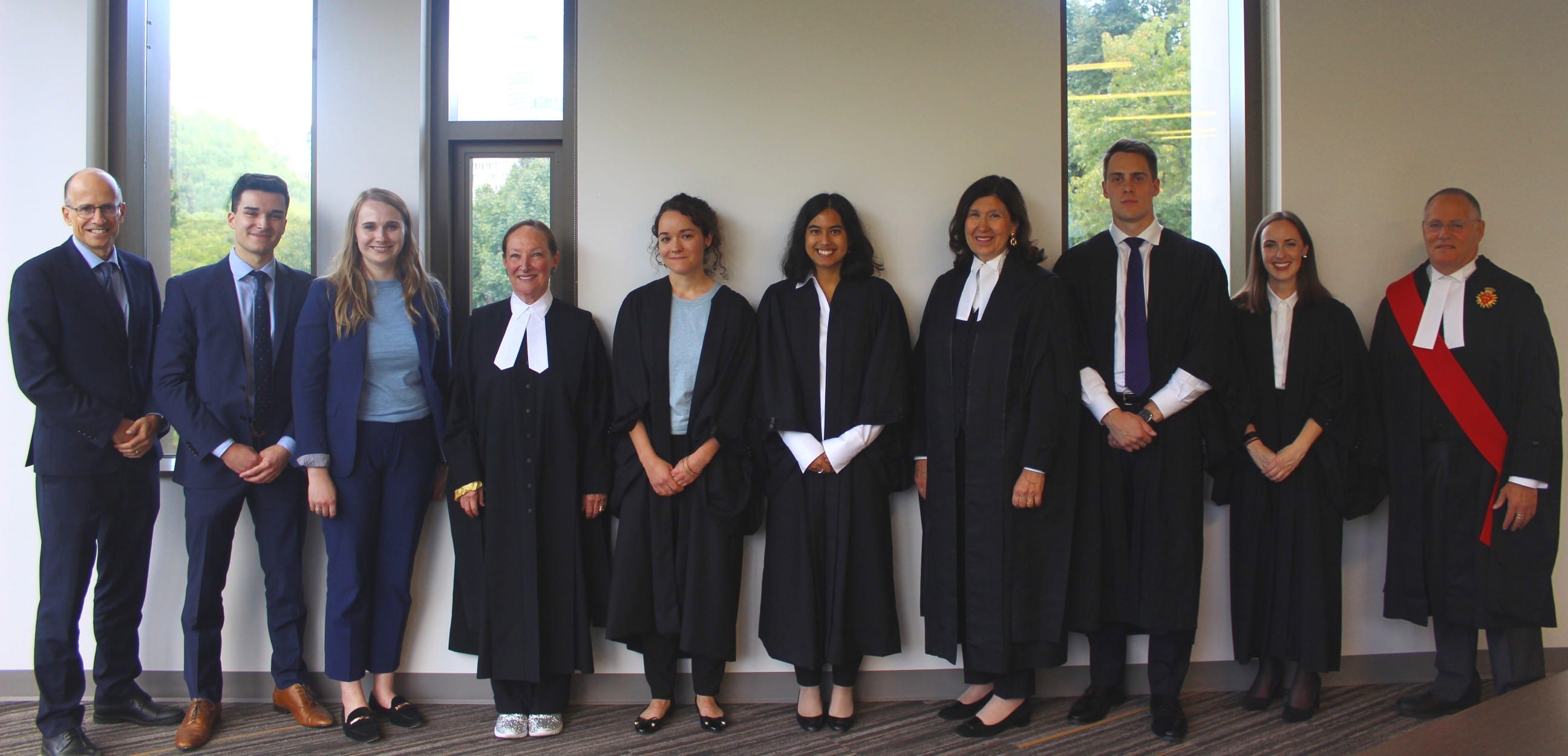Exemplary advocacy on display

This year’s Grand Moot was a legal tour de force on one of the most pressing legal issues of the day. The Moot took place before an esteemed panel consisting of Justice Edward M. Morgan of the Ontario Superior Court of Justice (LLB ‘84), Justice Kathryn N. Feldman of the Court of Appeal for Ontario (LLB ‘73), and Justice Rosalie Abella of the Supreme Court of Canada (LLB ‘70).
The problem was a thorny one: was the government’s current jury empanelment procedure constitutional? In R v Carol, the accused, Gladys Carol, an Indigenous woman living on-reserve in the northern reaches of Flavelle, was charged with second-degree murder. She claimed self-defence. Before the case could be decided on its merits, an application was made to find the Government of Flavelle’s jury empanelment procedures in violation of Carol’s ss. 11(d), 11(f), and 15(1) rights due to the underrepresentation of Indigenous people on Flavellian juries. Via public interest standing, Carol also advanced an argument that the s. 15(1) rights of potential Indigenous jurors were infringed by their underrepresentation.
The appellant Carol was represented by Nic Martin (3L) and Holly Kallmeyer (3L). They advanced the argument that the government’s failure to increase jury representation led to a failure to include Indigenous perspectives on the jury. It was advanced that this failure led to an appearance of institutional partiality and a corresponding breach of Carol’s s. 11(d) and 11(f) rights. Additionally, the benefit of a jury that properly represents its judicial district (provided by the provincial Juries Act) was denied to Carol, thus violating her s. 15(1) rights. Correspondingly, the s. 15(1) rights of the potential jurors were abrogated by their exclusion from the jury roll. None of these alleged breaches were justified under s. 1.
The respondent government was represented by Julia Kirby (3L) and Meena Sundararaj (3L). They contended that the efforts made to compile a representative jury roll were sufficient, and pointed out that the appellant conceded that the petit jury would be independent and impartial. Carol’s s. 11(d) and 11(f) rights were thus not infringed. In terms of s. 15(1), it was stated plainly that the Court cannot order the creation of an ameliorative scheme under s. 15, and further that the government’s efforts did not create a distinction on an enumerated or analogous ground that either denied a benefit or imposed a burden on those living on reserve.
The moot was hard fought. There was brevity:
MS KIRBY: I would like to begin by noting that if this Court does not agree with the Crown in this matter, we intend to invoke s. 33.
There were hard questions:
ABELLA J: Which case is that?
MS SUNDARARAJ: Law v Minister of Employment and Immigration.
ABELLA J: Oh, the one we overturned in Kapp? Okay. Just saying.
There were sparkly sneakers on Justice Abella’s feet.
While the justices reserved judgement, we would be hard pressed to come up with any result where the mooters were anything other than exceptional future lawyers. We extend our admiration and congratulations to the mooters who put in so much effort in providing an exemplary demonstration of what true advocacy looks like.





